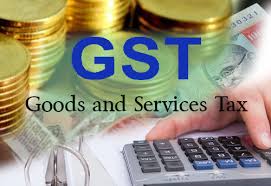 Two months after the new Goods and Services Tax was rolled out, scores of people still have no clarity on the different exemptions.
Two months after the new Goods and Services Tax was rolled out, scores of people still have no clarity on the different exemptions.
The four GST commissionerates in Hyderabad, Secunderabad, Rangareddy and Medchal, are conducting outreach programmes and workshops twice a week to clarify doubts on indirect tax in the post-GST regime.
Many GST help centres have also been opened in each commissionerate to assist people understand the new tax system.
Speaking to TOI, Satish Kumar C Takbhaware, deputy commissioner, Tarnaka GST division at Secunderabad GST and Central Excise Commissionerate said, maximum confusion about GST among people are pertaining to registration, return and input tax credit. Till date, he has conducted five such public awareness programmes under the ambit of Secunderabad Commissionerate.
“When it comes to the CGST exemption on turnover, the exemption limit is `10 lakh while it is `20 lakh for rest of the country. Two months on, this is not even clear to many people,” he added. The exemption is split into three major categories such as SGST, CGST, IGST and UTGST exemption on goods, services and turnover. The taxpayers who are exempted from CGST registration are agriculturist, persons making nil-rated or exempt supplies and those whose supplies are covered under reverse charge.
Kumar feels it is the need of the hour for people to know about the relations and differences between the exemption categories. To understand CGST, SGST and IGST, it is important to delve deep into the concept of inter-state vs intra state supply of goods and service under GST.The theory of such taxable transaction is that if people make a distinction between interstate and intrastate supply , they will know whether the tax will come under the centre, state or integrated category.
Both CGST and SGST are applicable for intra -state sale of goods but when it comes to inter-state sale, traders are charted as per IGST, which is the sum total of taxes levied by the state and Centre. Much to the ignorance of many people, the CGST exemption is applicable for 83 services including postal services, transportation of goods, vet clinic and education.

 Toll Free:
Toll Free:  Contact Us
Contact Us

